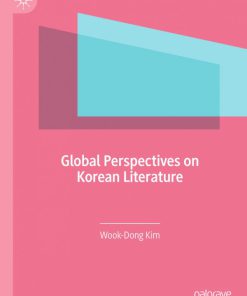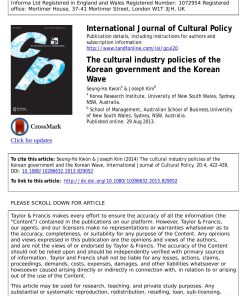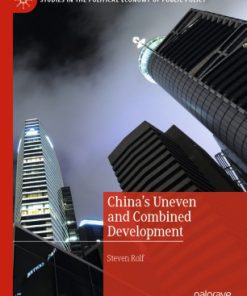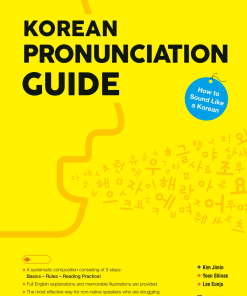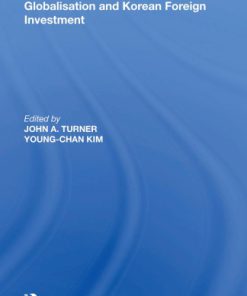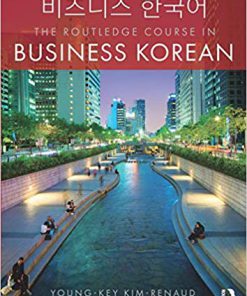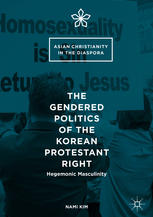Korean Modernization and Uneven Development Alternative Sociological Accounts 1st Edition by Kim Kyong Dong 9811034931 9789811034930
$50.00 Original price was: $50.00.$25.00Current price is: $25.00.
Korean Modernization and Uneven Development: Alternative Sociological Accounts 1st Edition by Kim Kyong-Dong – Ebook PDF Instant Download/DeliveryISBN: 9811034931, 9789811034930
Full download Korean Modernization and Uneven Development: Alternative Sociological Accounts 1st Edition after payment.
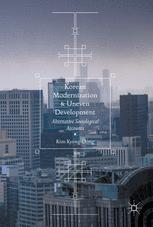
Product details:
ISBN-10 : 9811034931
ISBN-13 : 9789811034930
Author: Kim Kyong-Dong
Offering an alternative discourse on modernization and development viewed specifically from the East Asia perspective, this book focuses its analysis on the Korean experience of modernization and development. It considers the broad range of societal transformations which have occurred over the past half century, utilizing the vernacular language of Korea extracted from everyday life to interpret, characterize, globalize and pedagogically broaden the understanding and the human meaning behind these complex social changes.
Korean Modernization and Uneven Development: Alternative Sociological Accounts 1st Table of contents:
Chapter 1: Prologue
A Theory of Selective Modernization and Alternative Modernities: A Synopsis
The Basic Premises
The Historical Meaning of Modernization
The Major Characteristics of the Processes
International Acculturation
The Principles of Selectivity and the Dynamics of Societal Interactions
Development Redefined as a Value-Laden Concept
The Wisdom of the Yin–yang Dialectic and Thematic Approach
The Essentials of Yin–yang Dialectic
Principles of Change Derived from the Yin–yang Dialectic
The Principle of Limit and Return
The Principle of Moderation or Equilibrium
The Principle of Flexibility or Adaptability
Thematic Approach
Notes
Chapter 2: What Made Korea Tick? Alternative Accounts of the Distinctive Features of Korea’s Ec
Traditional Features of Korean Society and Culture
Emotionalism
Chŏng or Injŏng
Kibun
Hŭng and Sinparam
Aesthetic Sensibility and Cognitive Orientation
Interpersonal Relations and Principles of Social Organization
Personalism
Connectionism
Collectivism: “Uri-ism”
Exclusivism and Particularism
Extreme Black-and-White Mentality
Ŭiri
Ch’emyŏn and Nunch’i
Myŏngbun
Ritualism or Formalism Coupled with Moralism
Hierarchical Authoritarianism
Status-Power Orientation
Patriarchal Authoritarianism and Male Dominance
World-Views and Values: A Bird’s-Eye View
World-Views and Values: A Synopsis
Historical-Cultural Sources
External-International Factors
International Acculturation in the Economic Sector
Politico-Economic Conditions in the World
The Effect of General International Acculturation
Adaptive Change Involving Political and Cultural Selectivity
Political Selectivity at Work
Motivation
The Effect of Acculturation
Insecurity and the Instinct for Survival
The Social Psychology of Han and Ki Energy
Prospective Incentives
Quality of Human Resources
Education
Personal Characteristics
Mobilization and Organization
Mobilizational Strategy
The Basic Principles of Organization
Government Bureaucrats and the Military
Entrepreneurs and Chaebŏl, the Conglomerates
Intellectuals
The Alienated Classes
Some Features of Cultural Selectivity
The Ideology of Modernization and Pursuit of Happiness
Zeal for Education and Promotion of Science and Technology
Religion
Conclusion
Notes
Chapter 3: What Has Transpired in the Process of Korean Modernization? A Thematic Approach to t
Introduction
A Bird’s-Eye View of Change
Thematic Analysis of Social Change
The General Characteristics of Change
Abruptness of Change
The Demise of the Chosŏn Dynasty Due to Colonization
The Mental Blow of Sudden Liberation
The Immense and Unceasing Constraints Derived from the Unanticipated Division
The Tragedy of War
The Painful Scars of Repeated Political Upheavals
Rapid Urbanization Accompanying Swift Industrialization
Information-Communication Revolution
Double Financial Crises
Explosiveness of Change
The Urban Explosion
The Technological Explosion
The Organization Explosion
The Consumption Explosion
Excessiveness of Change
The Problem of the Excessive Speed of Change
The Problem of Excessive Craving for Achievement and Overheated Competition
The Vicious Cycle of Radical Extremism and Overreaction
The Characteristics of Approaches and Means of Change
Deliberateness of Change
Planned Change
Change by Reform
Change by Revolutionary Social Movement
Change by the Replacement of Generations
The Ideological Split
Deflected and Biased Goals
National Purposes Deflected by the Division
The Biased Goals of Modernization
Crippled Means of Change
The Crippled Nation-Building
The Distortion Effect of a Coup d’État
The Effect of Lopsided Economic Operation
The Vicious Escalation of Radicalization of Social Conflict
Slanted Acculturation and Distorted Education
A Short-Sighted Time Perspective
The Characteristic Consequences of Change
The Nature of History
Ruptured History
Heteronomously Determined History
Condensed History
The Unexpected Changes
Fertility Decline
Changing Family Patterns
Population Aging
Breakdown of Community with Lonely and Self-Centered Individuals
The Societal Consequences of the Financial Crises
Finally, a Multiethnic Society?
The Yin–yang Dynamics of Korean Modernization
The Yin–yang Dialectic of International Acculturation
The Yin–yang Dialectic of Internal Adaptive Changes
Shifting Yin-Yang Positions of Major Players
Changing Yin-Yang Positions of Different Cultural Elements
Values of Economic Prosperity versus Democracy
Economic Values versus Other Social Values
Industrialism and Urbanism as Opposed to Agrarian Values
Materialistic Values versus Spiritual Values
Theoretical Reflections
Closing Thoughts
Notes
Chapter 4: The Myths of Korean Democracy: Cultural- Structural Lag in Korean Politics
Introduction
Political Culture
Traditional and Historical Legacies
Traditional Political Culture in a Nutshell
Colonial Legacies
Contemporary Political Culture
Cultural and Structural Lag in Politics
The Political System and Institutions
Presidency
Representative Democracy
Political Parties
Political Processes and Practices
Elections
Political Participation
Decision-Making in Politics
Public Bureaucracy
How Democratic is Korea?
Political Sphere
Institutional Framework
Practices of Procedural Democracy
Functioning and Effectiveness of Political Institutions
Democracy in Civil Society
Liberty and Equity in Civil Society
Political Participation
Political Consciousness and Efficacy
Public Servants and Politicians
Citizenry
Closing Remarks
Notes
Chapter 5: Political and Cultural Selectivity in the Dynamics of Industrial Relations in Korea:
Introduction
The Political-Ideological Nature of Industrial Relations
The Historical Peculiarities
The Pre-Industrial Era
Pre-Colonial Days
The Colonial Period
Post-Liberation Days
The New Nation
The Era of Massive Industrialization: The Military Regimes of the 1960s Through the 1980s
The Great Worker Struggle of 1987 and its Immediate Aftermath
The Era of Globalization in the 1990s
The Financial Crisis of 1997 and the Post-IMF Era
A Thematic Analysis of the Unique Features of Industrial Conflict in Korea
The Unique Features of Industrial Conflict: Brief Descriptive Accounts
The Principles of Social Organization Affecting Industrial Relations and Conflict
Hierarchical Authoritarianism Clashing with Equalizing Tendencies
Status–Power Orientation
Emotionalism, Affective Networks, and Black-and-White Mentality
Ritualism or Formalism Coupled with Moralism
Cultural Factors in the Dynamics of Day-to-Day Industrial Relations Practices
Han, the Psychology of Frustration and Resentment
Conflict as a “Ki Contest”
Myŏngbun or the Justifiable Pretext of Conflict
Ch’emyŏn or Face-Saving
The Strategy of Nunch’i or Following the Herd
In Closing
Notes
Chapter 6: Epilogue
References
References in english language
References in korean language
People also search for Korean Modernization and Uneven Development: Alternative Sociological Accounts 1st:
korean modernization
korea modernization
modernization of korea
korean modernisation
south korea modernization
Tags: Korean Modernization, Uneven Development, Alternative Sociological, Kim Kyong Dong
You may also like…
Politics & Philosophy - Social Sciences
Social Media and South Korean National Security 0 ed Edition Kim
Politics & Philosophy - Anthropology
Global Perspectives on Korean Literature 1st Edition by Wook Dong Kim ISBN 981138729X 978-9811387296
Politics & Philosophy - Cultural
Uncategorized
Translations in Korea Theory and Practice 1st Edition by Wook Dong Kim ISBN 9811365121 9789811365126
Politics & Philosophy - Social Sciences
Languages - Korean Language Reference
Korean Pronunciation Guide How to Sound Like a Korean 1st Edition Kim Jimin
Business & Economics - Professional Finance
Reference - Writing
The Routledge Course in Business Korean 1st Edition Young-Key Kim-Renaud
History - Asian History
The Gendered Politics of the Korean Protestant Right: Hegemonic Masculinity 1st Edition Nami Kim





